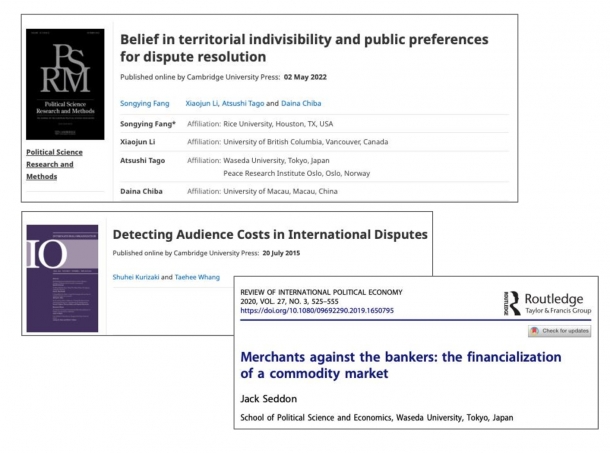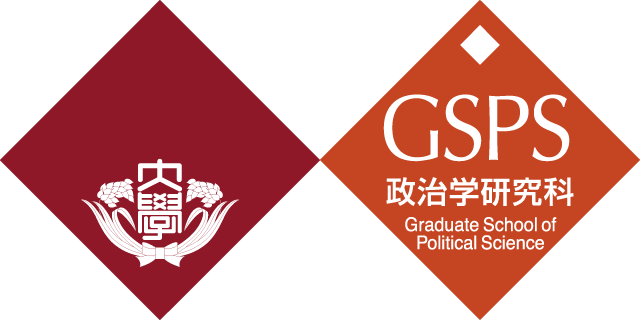- Research and Education
- Subfields
Subfields
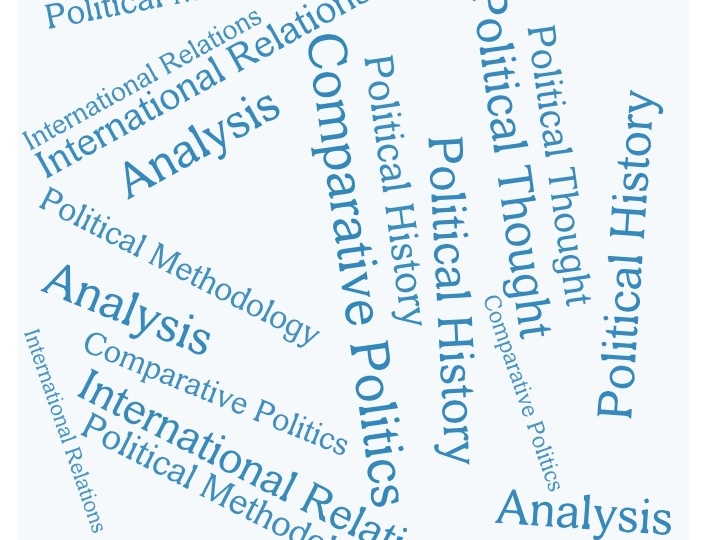
Researchers at the GSPS contribute broadly to the discipline of political science through innovative and influential research. We publish our articles in the discipline’s top journals and our books with prominent international academic publishers. While we embrace cross-cutting and interdisciplinary research, we organize ourselves into four broad fields of research, as described below.
We highlight some exemplary research on this page. For a more complete listing, search Waseda University’s database of research output.
- Political Methodology and Political Analysis
- Political Thought and Political History
- Comparative Politics
- International Relations
Political Methodology and Political Analysis
Why has the Liberal Democratic Party dominated Japanese politics for so long? How do political institutions affect behaviors of politicians and voters? Are bureaucrats deciding policies in Japan? What role does the media play in democratic politics? In answering questions such as these, how should political scientists design research to make causal inferences?
At Waseda University’s GSPS, our strength lies in our use of various research methods, including statistical analysis, game theory, surveys, experiments, and text analysis/natural language processing to study issues related to political representation, political institutions, and political behavior. Our recent doctoral students have written dissertations on a range of topics, including the effects of electoral systems on party systems, political participation among Japanese voters, authoritarian politics, and the political economy of poverty.
Not only are our faculty experts in Japanese politics and political methodology, they are also highly regarded scholars of American politics, comparative politics, international political economy, media and politics, and other areas within the disciplines of political science and public policy. Therefore, we place the study of Japanese politics in comparative and global perspective.
In addition to publishing in prominent Japanese and international academic outlets, our faculty also contribute to the public understanding of contemporary politics, through interviews and articles in prominent Japanese and international news outlets.
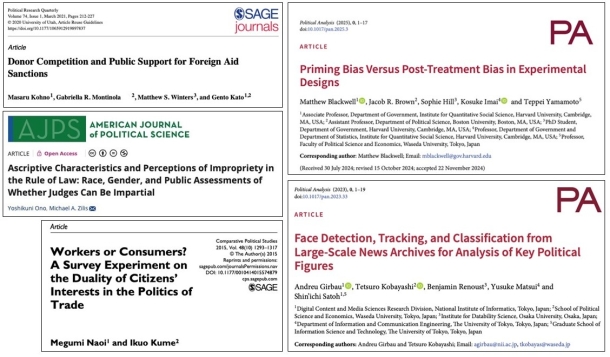
Political Thought and Political History
What is the purpose of government? Do we even need government? If we do, then what would be the best form? When can we say that political power is legitimate or justified? How should the government distribute individual rights/liberties as well as various economic benefits that have been produced through social cooperation? How have our political institutions changed throughout history?
Unlike positive political science, of which the primary aim is to explain how our political world actually is, the primary aim of normative political thought, or political philosophy, is to prescribe how our political world should be.
The GSPS faculty includes normative political theorists/philosophers as well as historians of political thought of Japan and the West. Our research explores the rationales and principles behind various political systems, such as liberal democracy, utilitarianism, feminism, socialism and even anarchism. We employ logical, conceptual, and hermeneutic methods for analyzing historical documents, including political philosophers’ classic works, and clarifying contemporary frameworks of political values. We bring critical awareness to power dynamics in gender, social class, knowledge, and the economy.
Waseda University has long been a research hub for political theorists in Japan, and our faculty often collaborate with scholars in East Asia, Europe, and North America. We also provide an excellent environment for cutting-edge interdisciplinary research in PPE — that is, Philosophy, Politics and Economics.

Comparative Politics
Why are some countries rich while others are poor? Why are some countries democracies when others are dictatorships? Why do some countries experience violence? Why are political party systems more polarized or less polarized? Why do some people participate in politics more than others?
The field of comparative politics studies politics that occurs primarily within countries. It is a diverse field that includes research on political institutions, political behavior, and political economy. Research in comparative politics employs comparisons across countries, within countries over time, or among individuals, organizations or regions.
At the GSPS, our research covers a range of themes, such as elections, political parties, media, welfare, development, democratization, civil war, and social movements, among others. We use a range of research methods, both qualitative and quantitative, such as statistical methods, text analysis, survey experiments, etc. The regional area expertise of our faculty includes East Asia, Western and Eastern Europe, and Latin America.
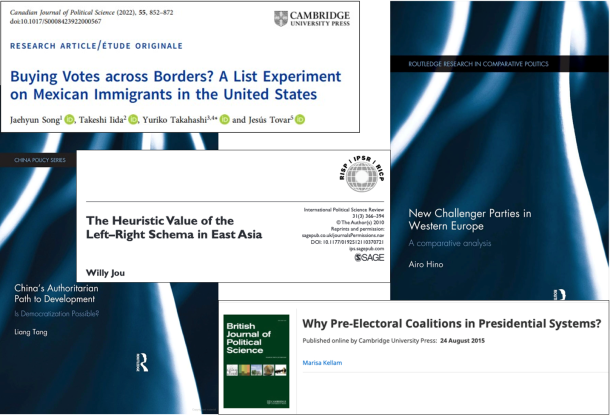
International Relations
Why do some countries fight with their neighbors while most others co-exist peacefully? Why have some countries formulated many military alliances, but not others? Under what conditions are human rights well protected? Why are some countries opening their markets and adopting free-trade policies when others are closing their borders and becoming protectionist? How do international organizations promote cross-border cooperation?
The field of International Relations, or “IR,” deals with politics that occurs among, or between, countries. A wide variety of subjects are included in the field — from international security and diplomacy to international political economy and globalization to human rights and global environmental politics to international institutions, regionalism and transnationalism. Research in IR employs multiple methods, including historical analysis, case comparisons, game theory, quantitative data analysis, and survey and lab experiments.
The international relations faculty of Waseda’s GSPS frequently collaborate with researchers from top universities around the world.
